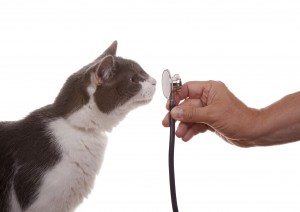 Cats may have nine lives, but even these resilient creatures can succumb to disease and accidents. Luckily, with the ever-improving advances in veterinary medicine, we are learning more and more about how to prevent problems before they ever begin.
Cats may have nine lives, but even these resilient creatures can succumb to disease and accidents. Luckily, with the ever-improving advances in veterinary medicine, we are learning more and more about how to prevent problems before they ever begin.
Preventative care for cats is an important part of pet ownership, especially when it comes to helping our fantastic feline friends living longer, healthier lives.
The Importance of Preventative Cat Care
Traditionally, veterinary medicine has focused on helping animals after a problem has already been diagnosed. More and more, though, we are moving toward a more preventative approach. Outcomes tend to be much better when we prevent diseases before they occur.
There has also been increased recognition of the importance of detecting problems early in their course. Even if these problems are not fixable, they are often better managed when found early on.
A Preventative Care Plan
Who doesn’t want to decrease the risk of disease and extend the life expectancy of their pet? Good preventative care can often do that for you cat, as it has a multi-pronged approach. A strong preventative care plan should consist of:
- Frequent wellness examinations – Your cat should be examined by a veterinarian at least once yearly, and perhaps more frequently if he or she is a senior or has health issues. During this examination we assess all of the body systems, looking to identify any abnormalities. This allows us to become familiar with what is normal for your pet so we can detect subtle changes. It is also a great opportunity to discuss what is going on at home and address questions.
- Vaccinations and parasite prevention – A personalized pet vaccination strategy is important for preventing many serious diseases. Most cats should be on some type of parasite prevention program to protect them from heartworms, intestinal parasites, and external parasites such as fleas.
- Wellness screening tests – Periodic lab work is an essential part of preventative care. Screening tests such as fecal examinations, blood work, and urine testing allow us to uncover problems before they become problems. They also help us to establish a baseline normal for your pet to compare results later in life.
- Dental care – Many cats suffer from some form of dental disease. Routine oral examinations and teeth cleanings under anesthesia can help head off dental pain and systemic infection.
While preventative care can’t completely eliminate the chance that your cat may develop disease or health problems, it can increase the odds of your pet living a longer and healthier life. Providing your pet with good preventative care builds a foundation for good health and ensures that you are doing everything that you can to provide your pet the best life possible.

